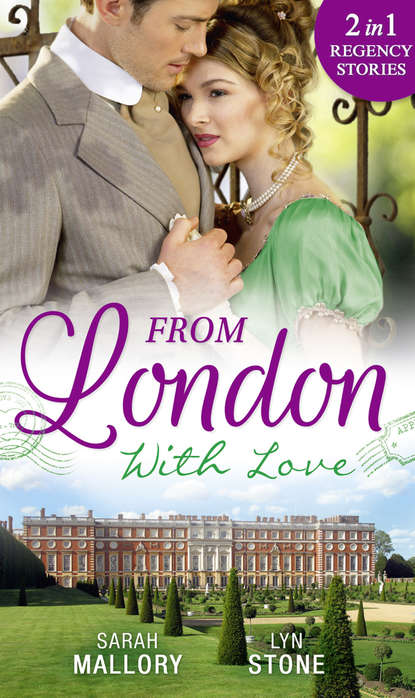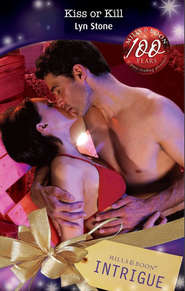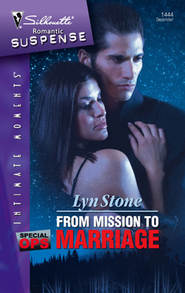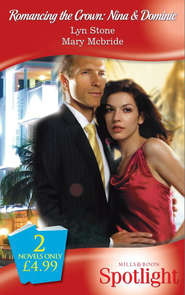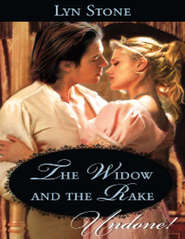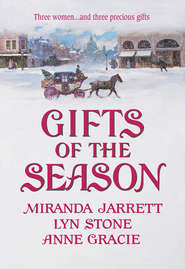По всем вопросам обращайтесь на: info@litportal.ru
(©) 2003-2024.
✖
From London With Love: Disgrace and Desire / The Captain and the Wallflower
Настройки чтения
Размер шрифта
Высота строк
Поля
Abruptly Eloise stood up.
‘I can translate it very well for myself,’ she muttered, turning away from him.
She forced her lips into a smile as Margaret Cromer approached her.
‘You play most beautifully, Cousin, but you have a delightful singing voice, too. Will you not let us hear it?’
‘Thank you Meg, but I do not think—’
‘Oh, my dear ma’am, do say you will sing for us,’ declared Lady Parham, beaming at her. ‘Mrs Cromer has been telling me that you were used to sing regularly for the guests at Allyngham.’
Eloise tried to decline, but other guests came up, adding their persuasion. Mrs Renwick took her hand and led her back towards the pianoforte.
‘Come along, my dear, you have played so well for us it is your turn now to shine—Mrs Cromer will accompany you, will you not, Meg?’
‘Of course, I should be delighted to play for Eloise—such a beautiful voice you have, Cousin! Now, what will you sing for us, my dear?’
Eloise hesitated, looking around at the happy, expectant faces. To decline would be impolite. She smiled.
‘Something else from Mr Mozart, I think. The Marriage of Figaro.’
‘We have it!’ cried Mrs Renwick, pulling another book from the pile.
Eloise nodded and looked at her cousin.
‘Can you play “Porgi, amor,” Meg?’
‘Oh heavens, my favourite aria!’ declared Lady Parham. ‘Do be quiet, everyone, and listen!’
An expectant silence settled over the room as Mrs Cromer played the short introduction. Eloise ran her tongue over her dry lips and composed herself. Many of the guests had pulled their chairs into a semi-circle to watch. Her eyes strayed around the room, noticing tiny details such as Sir Ronald leaning forwards, hands on his knees, Mr Graham sitting at the back of the group, picking his teeth, Mr and Mrs Renwick sitting shoulder to shoulder. And Jack Clifton, standing a little apart, his face in shadow. She must forget them all.
Eloise began to sing the Countess’s heartbreaking aria about the pain of losing her husband’s love. She had chosen to sing the English translation, but it was still beautiful and she closed her eyes, allowing herself to be swept away by the evocative words and music.
Jack stood in the shadows and listened, entranced. He was familiar with the opera but it had never before had such power to move him. Eloise sang the countess’s role with dignity and restraint, her full, rich voice filling the long gallery. There was such longing in her voice, such sadness in her blue eyes that he could almost believe her sincere. Almost. As the last, lingering notes died away he found himself swallowing hard to clear some constriction in his throat. There was a moment’s silence, then the room erupted into cheers and applause. Lady Allyngham was blushing, accepting their praise with modestly downcast eyes. Jack scowled as Sir Ronald stepped up to take her hand and kiss it. Damnation, the woman had bewitched them all!
There was a few moments’ stir and confusion. Renwick’s young nieces came up for their turn to perform and the mood lightened considerably as they sang a selection of folk songs. Jack watched Eloise move away from the crowd and he stepped quickly up to her.
‘So you identify yourself with the wronged countess, my lady.’ His tone was harder than he had intended. She cast one brief look up at him and he was taken aback to see her eyes glistening with tears.
She hurried past him without speaking and slipped out of the room while the company’s attention was fixed upon the young performers. In two strides Jack was at the door and following her along the cold stone corridor.
‘Lady Allyngham—Eloise!’
She stopped at his words but did not turn.
‘Will you not leave me alone?’ she muttered as he came up to her. She was hunting for her handkerchief. Jack handed her his own.
‘I beg your pardon. I did not mean to upset you.’
‘Did you not? I think you delight in upsetting me.’
He heard the bitter note in her voice. There was a sudden upsurge of sound as the door to the long gallery opened again. Eloise looked up, startled. Jack caught her arm and pulled her to one side, into an unlit corridor. There was a half-glazed door at the far end, through which pale moonlight gleamed and fell in silvery squares upon the tiled floor of the passage. They stood silently in the semi-darkness, listening to the soft sound of footsteps hurrying past. When the silence settled again Eloise realised that he was still holding her arm and tried to shake him off.
‘Let me go. We have nothing to say to each other!’
‘I think we do.’ Instead of obeying her demands, Jack caught her other arm. Her struggles to free herself were halfhearted. ‘Will you not hear me, madam? Please.’
She grew still suddenly, but did not raise her eyes. Jack breathed out in a long sigh and looked up at the blackness above him. ‘I don’t know why it is, but you bring out the worst in me.’
‘I have done nothing to warrant your cruel jibes.’
‘That is just it! To have spent the whole evening in your company and received not one warm look, one real smile. I confess I wanted to provoke you, to make you respond to me, even if it was with anger.’
‘Then it is better that we should not meet—’
‘No! At least, you must allow me to apologise—to say how sorry I am that Allyngham is dead. Your words when we last parted—that you wish I had perished on the battlefield instead of Tony—I had never before considered what you have lost, what you must have suffered. Watching you in there, hearing you sing, I realised how much you miss him.’ Jack looked at the still figure before him. She was trying very hard not to cry, her bottom lip caught between her teeth to stop it trembling. He said gently, ‘I do not pretend to understand your behaviour, madam, and if I have misjudged you, I pray you will forgive me.’
Even in the dim light he could make out the long lashes fanned out on her pale cheeks. Now those lashes fluttered and lifted slightly. Jack put two fingers under her chin and gently pushed her head up. He said softly, ‘My lady, will you not cry friends with me?’
She met his eyes for a moment, her own so dark and liquid he thought he might drown in them.
‘Not friends,’ she said quietly. ‘Too many harsh words have been exchanged for that. But it would be better for our hosts if we were not always arguing,’
He smiled, his spirits lifting a little.
‘A truce, then. And if I can help you discover who is sending those letters—’
‘No.’ She was withdrawing from him again. ‘I would not have you concern yourself with that.’
Jack was tempted to argue but he resisted: if she was not willing to confide in him then he would not force her. With time and patience he would win her round, he was sure of it. His instinct was to protect her. He wanted to carry her off, to shelter her from every ill wind. She was, after all, the widow of a valued comrade. With a little nod he stepped back.
‘Very well. But if you need my assistance, you only have to ask.’ He lifted his head, listening to the quiet strains of the pianoforte drifting from the long gallery. ‘They are dancing again. Do you wish to return?’ She gave a little shake of her head and his mouth twisted into a rueful smile. ‘No, nor I.’ Jack held out his arm to her. ‘Perhaps a stroll through the gardens, until you are more composed? There is a full moon tonight.’
Eloise opened her mouth to refuse, but it was as if someone else was controlling her voice.
‘Thank you, I would like that.’
Moments earlier she had been wishing Jack Clifton at Jericho, now she was taking his arm and accompanying him outside. The passage door opened on to a small cobbled yard at the far side of which a narrow gate in the low wall led the way into the rose garden. The bushes were overgrown with only a few late-summer blooms hanging on, but even so it looked beautiful in the moonlight. The only sound was the occasional cry of a fox from the park and the soft crunch of the gravel beneath their feet. Eloise felt her tension draining away. Despite their differences, Jack Clifton was the one man at Renwick Hall she was sure she could trust.
‘You seem to know your way about the house very well, Major.’
‘Renwick and I are old friends. I have stayed here many times before when I have been on leave.’
‘I understand you have quit the army now. What will you do?’
‘Yes, I have sold out. I have no family, My father died just a year ago, leaving me a pretty little property in Staffordshire, Henchard. It needs some work but it is a snug little house and the land could be very profitable, I think. Did I not tell you I shall become a gentleman farmer?’
She smiled at that.





